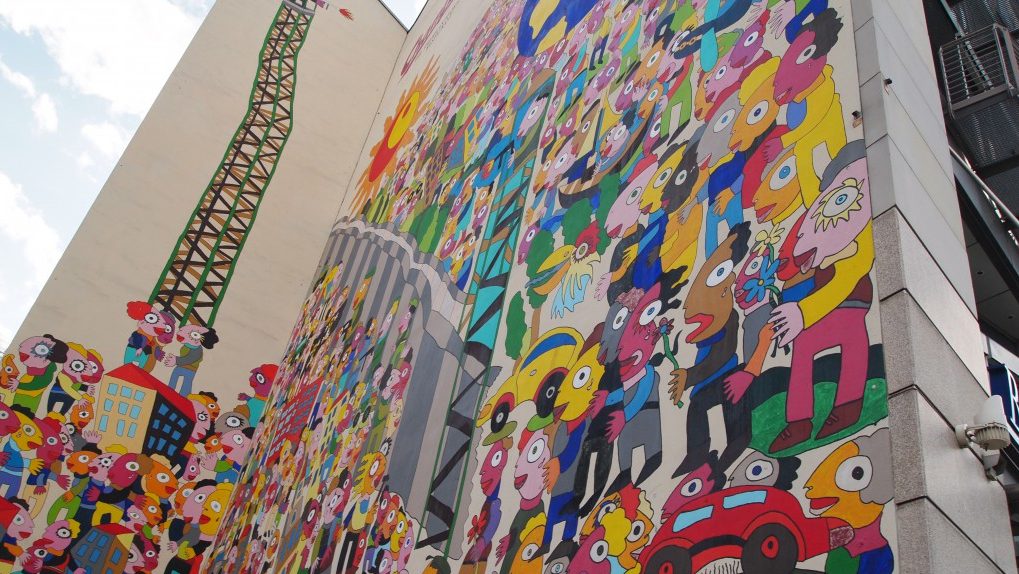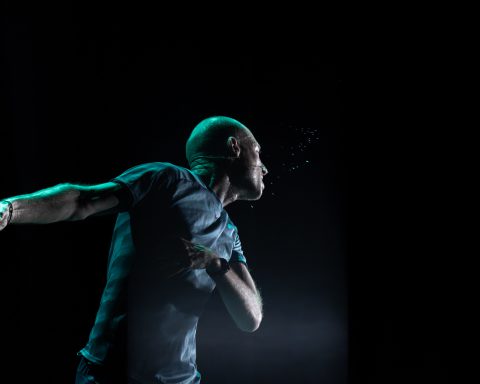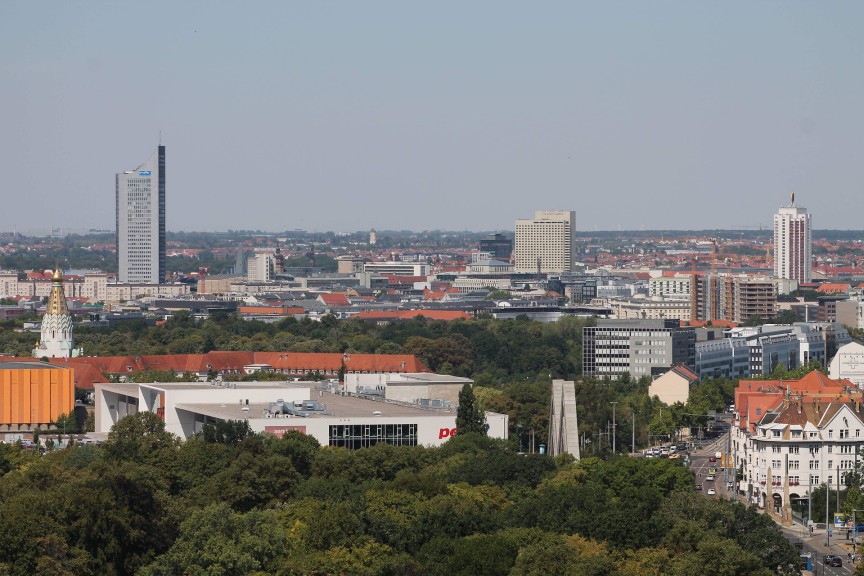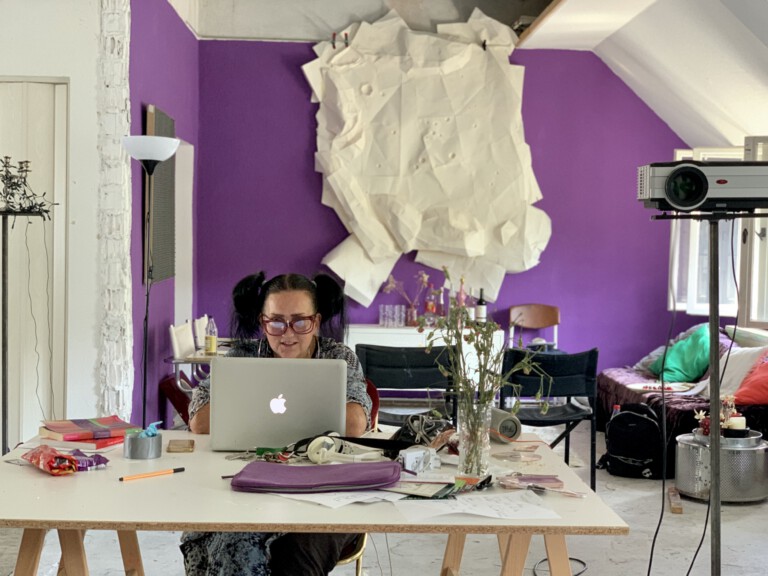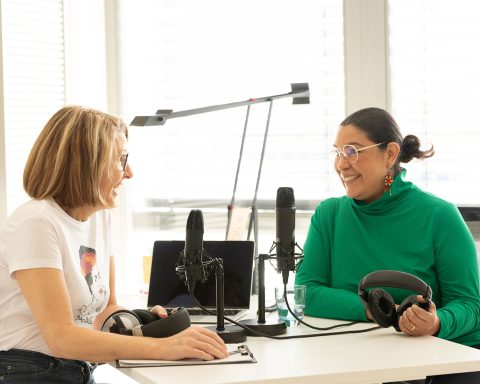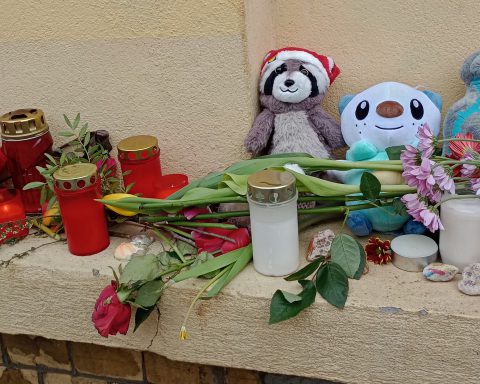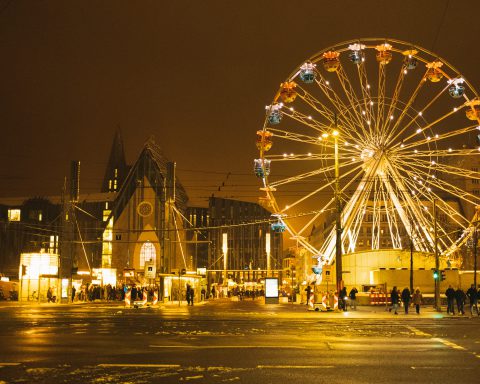Soon it will be eight years since I moved to Leipzig. It was here that I met my husband (a German) and some of my dearest friends (many also German). My Leipzig University colleagues and the local startup community have been mostly lovely to me. At the same time, Leipzig is the first city I’ve lived where I’ve come to recognize microaggressions for what they are, as they surface in random, mundane moments of my daily life.
The discrimination I’ve suffered here – at clubs, bakeries, public spaces – does not compare to being a black person basically anywhere in the world. It does not compare to having been a victim of violent racially-motivated attacks, which have been on the rise recently in Germany and resulted in several murders in our region over the past two decades. However, my personal experiences do serve to show that discrimination can sneak up on us when we least expect it, even in places where we felt safe and welcome in the past. And microaggressions do add up.
We must be alert, talk about it, call it for what it is, call it out, if we are to prevent the Nazis from rising again. In the dichotomies of our beautiful-ugly Leipzig, they are getting stronger just as the far-left is.
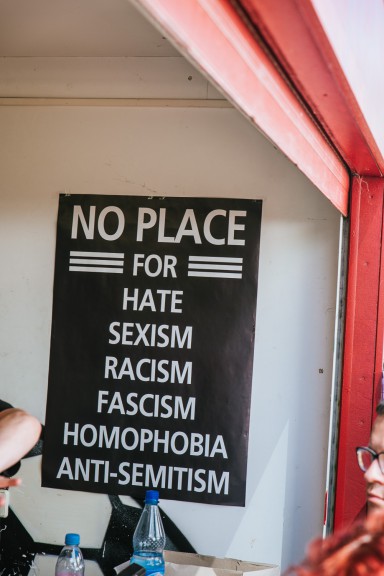
Growing up in Brazil, where collective myopia has currently enabled a fascist government, I was considered “white,” and some family members get shocked at how “communist” I am now (since everyone who’s not a right-winger and stands up for the rights of minorities must be a commie). The irony of their proudly white-privileged mindset and denial of racism is that in the industrialized countries they so admire, most of them are brown enough to be considered “people of color” and all of a sudden the shoe is uncomfortably on the other foot.
Later, living both in the US and Europe – Denmark, Poland, Germany – I ticked the “Latino” box, as if multiple cultures and ethnic backgrounds could be reduced to one handy little category. Here and now that category tends to translate into “Maybe Arab [READ: MUSLIM]” – the current go-to scapegoats for fear of the unknown, (self-)hatred, and frustration with our globalized capitalist system. South American men I know from Leipzig were convinced they were profiled that way, having been pulled aside for police checks, singled out for tram ticket fines, or right-out struck with anti-Arab comments.
The “anti-Islamization of Germany” movement – which infiltrated Leipzig’s ranks as “Legida” – targets all immigrants who look certain ways and tick certain imaginary boxes, and by extension their supporters, so don’t think for a second that not being Muslim or a refugee exempts or protects you.
However, I admit that it can be difficult to acknowledge discrimination, that others see you as “less than,” and for years living abroad I was in denial about the microaggressions, the teasing of my accent and looks, the gazes burning with objectification or loathing, the velvet-wrapped stereotypes thrown at me.
It suddenly all came together one night in Leipzig a little over two years ago, where no doubt was left about what was happening. A friend and I, “obvious” foreigners, were denied entry into a popular grungy nightclub ostensibly because we weren’t carrying our passports. Bringing up the incident at the bar next door and later publishing about it on LeipGlo’s channels, I received a flurry of similar accounts from other foreigners barred from Leipzig clubs, including of a case taken to court. Another Brazilian said that he got blocked by bouncers every weekend around town on different bogus grounds, and that he had to develop creative strategies to get in.
I should have realized it before then. The hostility of a German “friend” towards my slow progress in German and speaking English around him. The hatred in an older white woman’s eyes as she had to make way for me to walk across to the tram’s ticket machine. The unnecessary obstacles and short visas they put us through at the Ausländerbehörde. The fact that, to make a point and put up resistance, there had to be massive anti-Legida demonstrations, the first of which I spent my birthday at “for the refugees” (when really, it was also for me).
But it took being kept from hanging out at a place I had grown fond of and gone to many times before without any issues, for the reality that I am not totally “welcome here” to sink in.
For months I didn’t experience any unequivocal microaggressions, and hardly thought about it, until the Covid-19 crisis gave people a convenient mask (pun intended) to stave off “the other,” in the guise of maintaining “safety” and “hygiene” – to an extreme in China, but also here in Germany.
One afternoon during lockdown in Leipzig, as I was jogging at Lene-Voigt-Park at a perfectly acceptable social distance from an older white woman, she yelled “Abstand!” at me. I observed her for a while from farther away, and she did not yell at anyone else passing by to keep their distance (even those coming closer to her than me). At a bakery just the other day near the Albertina uni library, the clerk shouted out commands at me when I couldn’t immediately grasp the place’s “Abstand” directions, not even trying to disguise her annoyance and contempt.
I experienced similar displays over the past few months – it’s always the same contorted facial expression, narrowing of the eyes and instant exasperation – from a security guard at a uni building and from an assistant at an eye doctor, as soon as I opened my mouth or failed to understand something. These “little” incidents make me feel like shit about myself, and I find myself blowing up and crying in private whenever they happen, forgetting for some moments all the wonderful things about Leipzig and swearing that I will leave for greener pastures. Where that could possibly be under the current state of matters, though, I do not know.
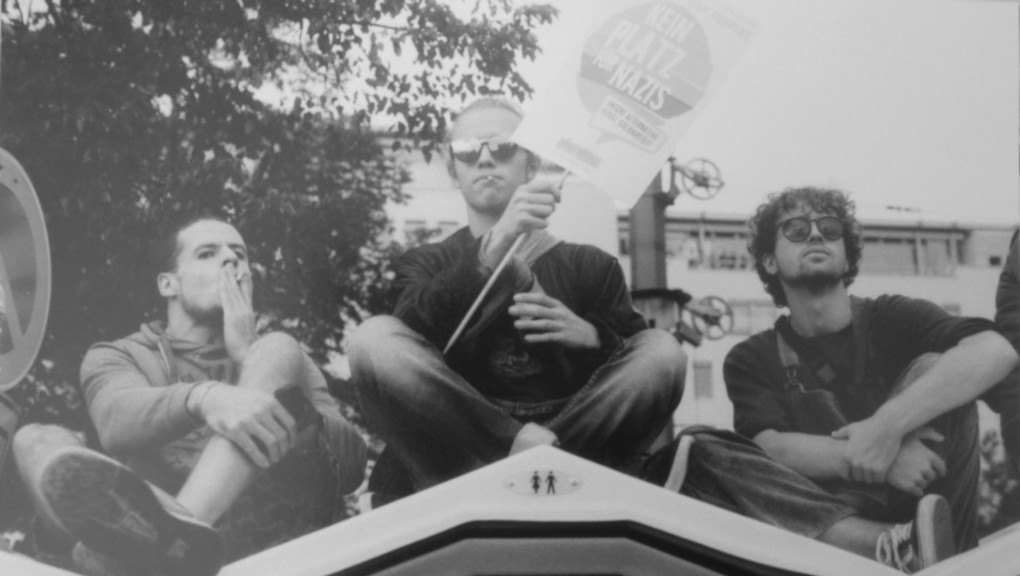
How can my anger towards these microaggressions help, some may ask? If nothing else, for strengthening my solidarity and empathy towards other victims of discrimination, and trying to do my part joining the long-overdue open dialogue about discrimination in our society. By doing this, I am also honoring the Germans who have shown me and other foreigners love and acceptance, and who strive in big or small ways for a better Gemeinschaft.
I am not exceptional as I had been led to believe by my upbringing. I am part of it all, as both a victim and an accomplice, for all the times I remained or suffered in silence or shrugged off racist comments for fear of ruffling feathers.
We may be comparatively lucky to be living in Leipzig during the Covid-19 crisis, and the city may be promoted by its administration and quite a few current and former residents as an island of tolerance and cosmopolitanism in Saxony. But as Antar Keith indicated in his recent Black Lives Matter op-ed, we shouldn’t forget that, besides what’s going on in the US, we still have quite a ways to go to uproot deeply ingrained racist practices and systematize tolerance at our local level.
Unfortunately, it seems like the horrific and not-so-distant Nazi past was not enough of a lesson.

